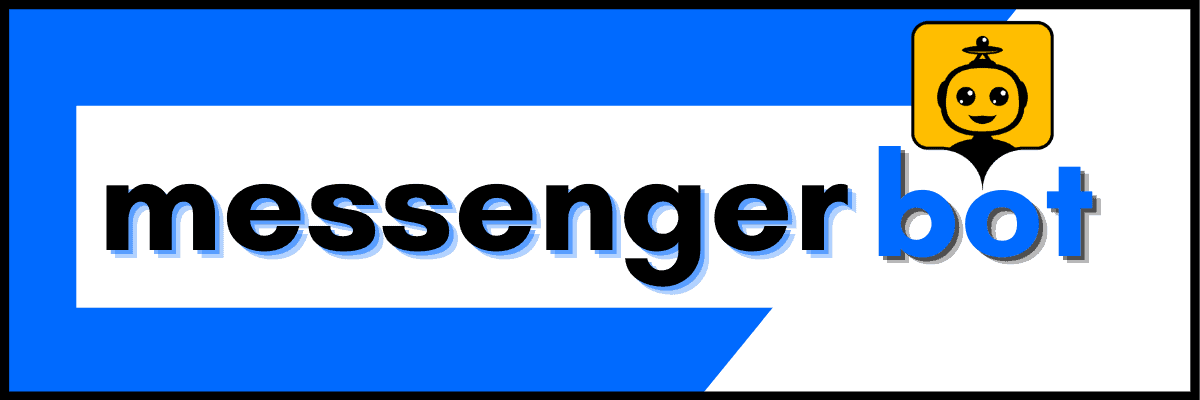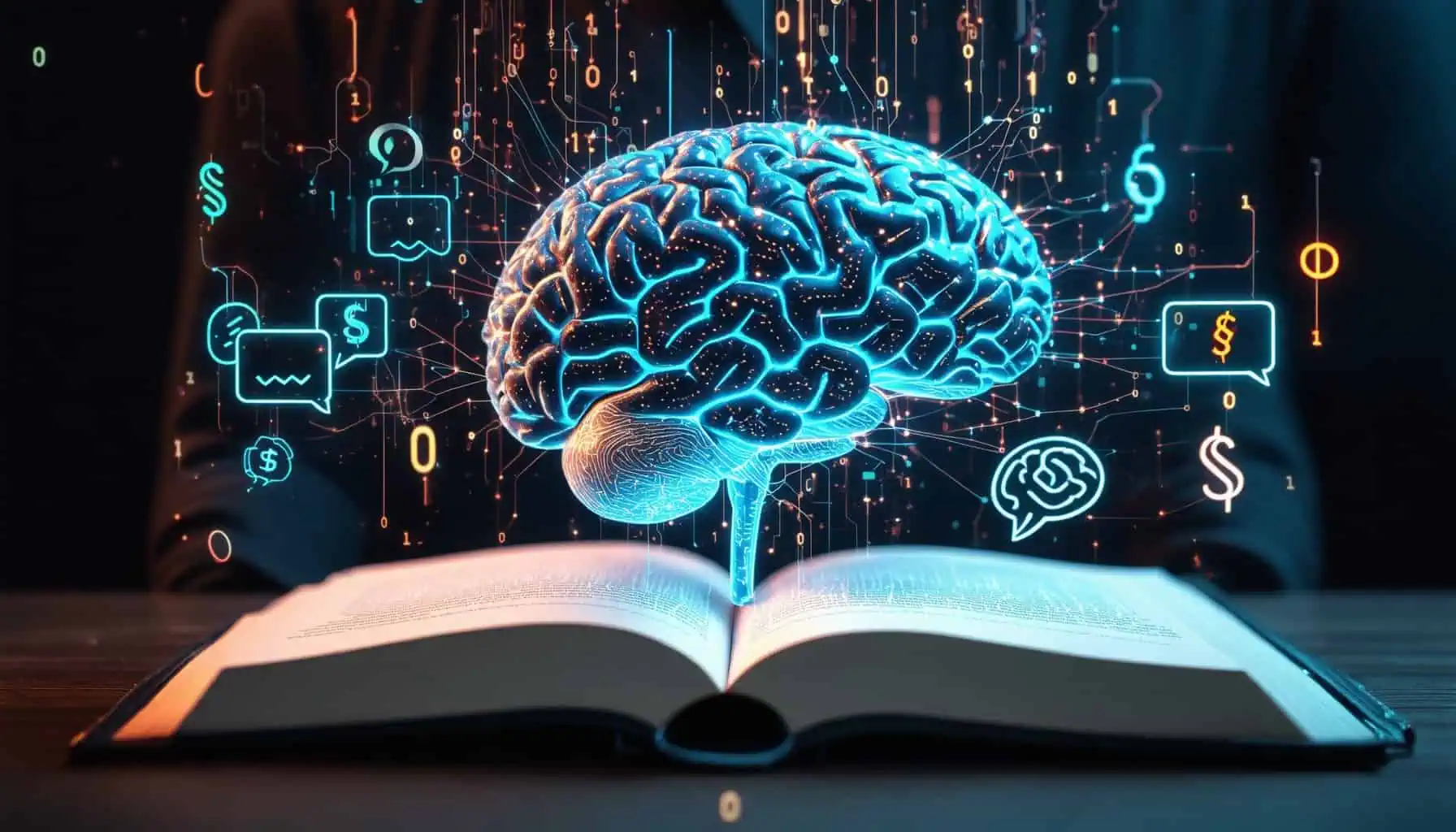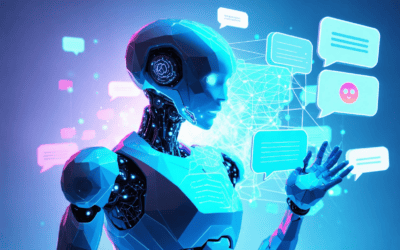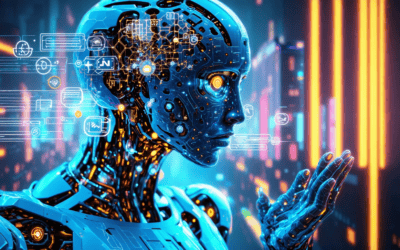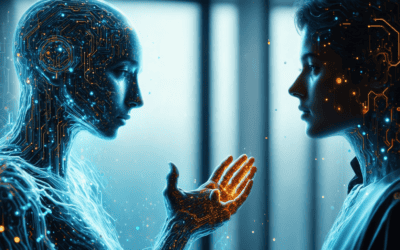Puntos Clave
- Master AI chatbot development by learning foundational AI, NLP, and machine learning concepts essential for building intelligent self-learning chatbots.
- Utilize top platforms like Coursera, edX, and communities such as learning AI chatbot Reddit to access free resources and practical support for accelerated AI chatbot training.
- Follow step-by-step Python programming guides and frameworks like TensorFlow, PyTorch, and Rasa to create and continuously improve self-learning chatbots.
- Leverage AI chatbot deep learning models and language learning AI chatbot technologies to build chatbots capable of dynamic, context-aware conversations and multilingual support.
- Explore monetization opportunities by training AI chatbots via platforms like Remotasks and Appen, with competitive salaries influenced by skills in AI chatbot development and deep learning.
- Advance your career in AI intelligence bot technology by developing expertise in self-learning chatbot frameworks, language learning AI chatbots, and integration with messaging platforms.
- Access numerous free AI and chatbot courses, tutorials, and open-source projects to build hands-on experience and stay current with emerging AI chatbot language learning trends.
- Implement language learning AI chatbots to provide personalized, interactive language practice with instant feedback, enhancing user engagement and fluency development.
Embarking on the journey of learning AI chatbot development opens a world of innovation and opportunity in the realm of bot de inteligência artificial technology. This beginner’s guide is designed to demystify the process of creating self-learning chatbots, exploring everything from foundational concepts to advanced techniques like self-learning chatbot Python programming. Whether you’re curious about how to make a self-learning chatbot, interested in the latest AI chatbot deep learning models, or eager to understand the career potential and salary insights for bot de IA developers, this article provides a comprehensive roadmap. We will also delve into the exciting applications of chatbots for language learning, highlighting how language learning AI chatbot innovations are transforming communication and education. Along the way, discover top platforms, communities such as learning AI chatbot Reddit, and free resources to accelerate your mastery of desenvolvimento de chatbots de IA. Prepare to unlock the full potential of AI intelligence bot technology with practical insights and actionable steps tailored for beginners and aspiring experts alike.
How to Learn AI Chatbot?
Learning AI chatbot development involves mastering a blend of artificial intelligence bot technologies, natural language processing, and machine learning principles. To effectively learn chatbot self learning techniques and AI chatbot deep development, it’s essential to build a strong foundation in these areas. Whether you are interested in creating an ai based chatbot for customer service or exploring chatbot language learning applications, understanding the core concepts behind ai chatbot models and ai chatbot development is crucial. This knowledge enables you to design intelligent, responsive chatbots that can engage users naturally and efficiently.
Exploring Learning AI Chatbot Online: Best Platforms and Communities
To learn AI chatbot development and training, start by understanding the fundamentals of AI and chatbot technology. This includes studying artificial intelligence, natural language processing (NLP), and machine learning frameworks that power ai intelligence bots. Platforms like Coursera, edX, and Udacity offer comprehensive courses on these topics, while communities such as Stack Overflow and GitHub provide practical insights and collaborative learning opportunities.
Defining clear chatbot use cases and objectives is the next step. Whether you want to build a chatbot for language learning or a self-learning chatbot python project, identifying the chatbot’s purpose helps tailor the ai chatbot model and training data effectively. Analyzing user intents and conversation flows using tools like Dialogflow or Rasa enhances the chatbot’s ability to understand and respond accurately.
Generating diverse training data is vital for improving chatbot accuracy. This involves creating variations of user queries to cover different phrasings and contexts, which is especially important for language learning chatbots and ai chat language learning applications. Matching keywords and intents precisely ensures the chatbot’s NLP model reduces misunderstandings and improves user satisfaction.
Training and fine-tuning the chatbot model using frameworks such as TensorFlow or PyTorch allows for continuous improvement. Incorporating personality and conversational style aligned with your brand enhances engagement. Finally, testing, monitoring, and iterating based on user feedback ensures your chatbot remains effective and relevant.
For hands-on learning, explore established chatbot platforms like Microsoft Bot Framework, Google Dialogflow, or open-source solutions such as Rasa. These platforms provide valuable resources and examples to accelerate your learning journey. Additionally, reviewing research from institutions like MIT or Stanford and publications from the Association for Computational Linguistics (ACL) can deepen your understanding of advanced AI chatbot development techniques.
To get started quickly, check out our AI chatbot setup tutorial e chatbot development guides for practical steps on building your first AI bot.
Leveraging Learning AI Chatbot Reddit for Practical Insights and Support
Reddit is a valuable resource for anyone learning chatbot self learning techniques or exploring ai chatbot language learning innovations. Subreddits dedicated to AI, machine learning, and chatbot development offer real-world advice, troubleshooting tips, and community support. Engaging with these communities allows you to stay updated on the latest trends in ai bot technology and share experiences with fellow learners and developers.
On platforms like Reddit, you can find discussions about self-learning chatbots, including how to make a self-learning chatbot using Python, best practices for ai chatbot deep training, and insights into ai language learning conversation models. These conversations often include code snippets, project ideas, and recommendations for tools and resources that can accelerate your learning process.
Participating in Reddit communities also helps you understand common challenges faced during ai chatbot development and discover solutions that have been tested by others. This peer-to-peer learning complements formal education and hands-on experimentation, making it easier to master complex concepts and apply them effectively.
For a structured approach, combine insights from Reddit with official tutorials and resources like the free trial for AI chatbot to practice building and refining your own ai intelligence bot. This blend of community knowledge and practical experience is key to becoming proficient in learning chatbot development and training.
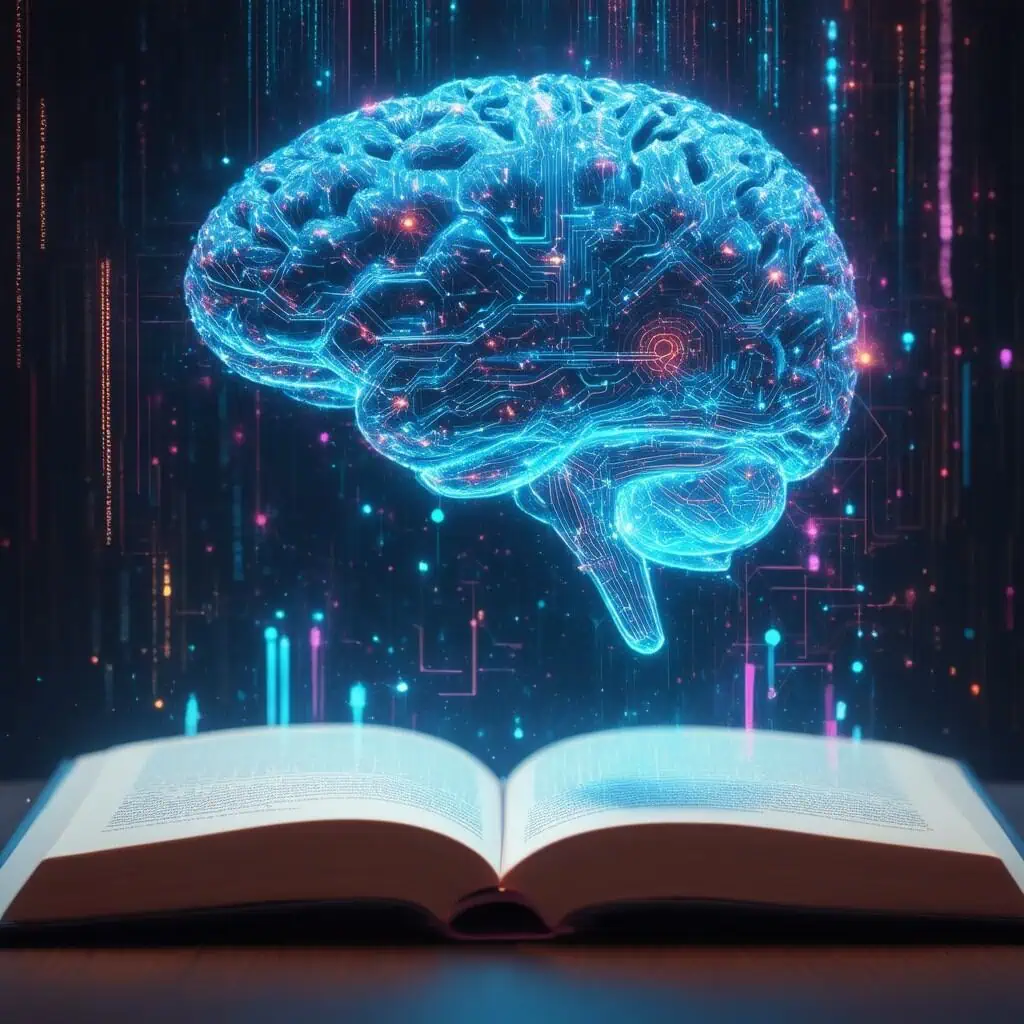
How to Make Self Learning AI Chatbot?
Creating a self learning AI chatbot involves combining advanced artificial intelligence bot technologies with continuous learning mechanisms to enable the chatbot to improve its responses over time. This process requires a clear understanding of AI chatbot development, from designing the AI chatbot model to integrating it effectively within your chosen platform. Leveraging AI chatbot deep learning techniques and AI based chatbot frameworks, you can build a chatbot that not only interacts intelligently but also evolves through user interactions.
Step-by-Step Guide on How to Make a Self Learning Chatbot Using Python
To build a self-learning chatbot using Python, follow these essential steps that incorporate machine learning, natural language processing (NLP), and iterative improvement:
- Define Chatbot Objectives and Use Cases: Determine what tasks your chatbot will handle, such as customer support or lead generation, and identify the platforms where it will operate, including websites or messaging apps.
- Choose the Right Technology Stack: Utilize Python libraries and frameworks like TensorFlow, PyTorch, spaCy, or Hugging Face Transformers for AI and NLP capabilities. Frameworks such as Rasa or Microsoft Bot Framework provide strong foundations for AI chatbot development.
- Develop Natural Language Understanding (NLU) Components: Implement NLU to interpret user intents and extract entities using pre-trained models like BERT or GPT, fine-tuned for your domain.
- Implement Machine Learning for Self-Learning: Integrate supervised and reinforcement learning methods that allow the chatbot to learn from user interactions, using feedback loops to refine its responses continuously.
- Build a Knowledge Base and Dialogue Management System: Create a structured knowledge base and develop dialogue management to handle multi-turn conversations and maintain context.
- Enable Continuous Learning and Improvement: Collect conversation logs and user feedback to retrain models periodically, ensuring the chatbot adapts to new queries and language trends.
- Teste e implante: Perform thorough testing and deploy the chatbot on your selected platforms, ensuring scalability and security.
- Monitore e Otimize: Use analytics to track chatbot performance and optimize conversational strategies through A/B testing.
While platforms like Messenger Bot provide excellent AI chatbot features and workflow automation, they do not natively support self-learning chatbots. However, you can integrate your self-learning chatbot backend with Messenger Bot APIs to deploy your AI intelligence bot on Facebook Messenger and other channels. For a beginner-friendly introduction, check out our AI chatbot setup tutorial.
Understanding AI Chatbot Development: From AI Chatbot Model to AI Bot Integration
AI chatbot development encompasses several critical phases, starting with designing the AI chatbot model and culminating in seamless integration with user-facing platforms. The AI chatbot model is the core intelligence that drives the chatbot’s understanding and response generation, often built using AI chatbot deep learning techniques and natural language processing.
Developing an effective AI chatbot model involves selecting appropriate architectures such as transformer-based models, which excel in AI chat language learning and context retention. These models power language learning chatbots and language learning AI chatbot applications, enabling them to engage in meaningful AI language learning conversation with users.
Once the AI chatbot model is trained, the next step is integration. This involves connecting the AI bot to messaging platforms, websites, or mobile apps. Integration ensures that the AI intelligence bot can interact with users in real-time, leveraging features like multilingual support and workflow automation. For example, Messenger Bot offers robust chatbot capabilities overview that facilitate smooth deployment and management of AI based chatbots.
Throughout development, continuous testing and optimization are vital to maintain high-quality interactions. Utilizing analytics and user feedback helps refine the AI chatbot model, enhancing its ability to learn and adapt. For developers seeking comprehensive resources, our chatbot development guides provide valuable insights into advanced learning chatbot techniques.
For those interested in exploring other AI chatbot platforms, Brain Pod AI offers a powerful multilingual AI chatbot solution that supports sophisticated AI chatbot language learning capabilities, complementing the features available through Messenger Bot.
Can You Make Money Training AI Chatbots?
Yes, you can make money training AI chatbots by participating in various online platforms that hire remote workers to improve chatbot performance. Companies developing AI chatbots often require human input to refine natural language understanding, correct responses, and enhance conversational abilities. Platforms like Remotasks offer opportunities to earn up to $18 per hour, which can amount to approximately $720 weekly, depending on the hours worked. Tasks typically include annotating data, validating chatbot responses, and providing feedback to improve machine learning models.
In addition to Remotasks, other platforms such as Appen, Lionbridge, and Amazon Mechanical Turk also provide paid microtasks related to AI training, including chatbot training. These roles are flexible, allowing you to work remotely and set your own schedule, making them accessible for a wide range of individuals.
Training AI chatbots involves tasks such as intent classification, entity recognition, dialogue management, and sentiment analysis, which are critical for improving chatbot accuracy and user experience. By contributing to these tasks, you help AI systems better understand human language nuances, leading to more effective and natural interactions.
While Messenger Bot is a popular AI chatbot platform primarily used for automating Facebook Messenger conversations, it is not typically associated with paid training tasks for AI chatbots. Instead, it is a tool for businesses to create AI based chatbots for customer engagement rather than a platform for earning money through chatbot training.
For those interested in learning more about how to make a self learning chatbot or exploring AI chatbot development, our AI chatbot tutorials e beginner guide to AI chatbot development provide valuable insights and step-by-step instructions.
Chatbot Training Job Opportunities: Monetizing Your AI Bot Skills
Monetizing your skills in AI chatbot training is increasingly viable as demand for high-quality artificial intelligence bots grows. Many companies seek experts to enhance their ai chatbot deep learning models and improve conversational accuracy. Job opportunities range from freelance microtasks to full-time positions focused on AI chatbot development and maintenance.
- Remote Microtask Platforms: Platforms like Remotasks, Appen, and Lionbridge offer paid tasks such as data annotation, chatbot response validation, and natural language processing improvements. These tasks contribute directly to the refinement of ai intelligence bots and self-learning chatbots.
- Freelance AI Bot Projects: Freelancers can find projects involving chatbot self learning, ai chatbot model tuning, and ai chat language learning enhancements on marketplaces like Upwork and Fiverr.
- Corporate Roles: Companies developing advanced ai based chatbots hire specialists to work on ai chatbot development, including training language learning chatbots and optimizing ai language learning conversation systems.
Developing expertise in chatbot self learning and self-learning chatbot python programming can significantly increase your earning potential. For those looking to start, exploring free trial for AI chatbot platforms can provide hands-on experience with chatbot capabilities overview and AI chatbot features.
Building a Career with AI Intelligence Bot: Salary and Growth Potential
Building a career around AI intelligence bot technology offers promising salary prospects and growth potential. As businesses increasingly adopt ai chatbot deep learning and ai based chatbot solutions, the need for skilled professionals in chatbot self learning and ai chatbot development rises.
- Salary Range: AI chatbot developers and trainers typically earn competitive salaries, influenced by experience, technical skills, and industry demand. Specialized knowledge in self-learning ai chatbot frameworks and language learning ai chatbot applications can command higher pay.
- Career Growth: The AI chatbot field is rapidly evolving, with opportunities to advance into roles such as AI bot architect, conversational AI specialist, and machine learning engineer focused on chatbot language learning technologies.
- Skill Development: Continuous learning in ai chatbot language learning, ai chat language learning, and chatbot for language learning technologies is essential. Engaging with communities like learning ai chatbot reddit and leveraging resources such as Brain Pod AI platform can accelerate your expertise.
For those serious about a career in AI chatbot development, exploring pricing plans and subscription options on platforms like Messenger Bot can provide access to advanced tools and features that support professional growth. Check out our AI chatbot pricing plans and consider joining the chatbot affiliate program to expand your professional network and income streams.
What is the salary of AI chatbot?
Understanding the salary landscape for AI chatbot developers and AI bot specialists is essential for anyone pursuing a career in this dynamic field. The salary of an AI chatbot developer varies significantly based on location, experience, and the specific role within AI and chatbot development.
Salary Insights for AI Chatbot Developers and AI Bot Specialists
In India, the average annual salary for a Chatbot Developer is approximately ₹6,30,000, with total compensation often reaching around ₹8,30,000 per year, according to data from Glassdoor (2025). This figure represents the median salary, reflecting the midpoint of reported earnings from professionals in this field.
Globally, AI chatbot developers tend to earn higher salaries in regions with advanced tech industries. For example, in the United States, the average salary for AI engineers, including those specializing in chatbot development, ranges from $90,000 to $150,000 annually, depending on expertise and company size, as reported by the U.S. Bureau of Labor Statistics and industry salary surveys (2024). Senior roles or positions at leading tech firms can command salaries exceeding $180,000 per year.
Proficiency in natural language processing (NLP), machine learning frameworks, and programming languages such as Python and JavaScript are key skills that influence salary levels. Experience with AI chatbot deep learning models, AI chatbot development platforms, and integration with messaging services like those offered by Messenger Bot can further enhance earning potential. Staying current with AI chatbot language learning advancements and AI language learning conversation technologies also plays a vital role in career growth.
Factors Influencing AI Chatbot Salary: Experience, Skills, and Industry Demand
Several factors impact the salary of AI chatbot developers and AI bot specialists:
- Experience Level: Entry-level developers typically earn less than seasoned professionals who have mastered AI chatbot models and AI chatbot deep learning techniques.
- Technical Skills: Expertise in self-learning chatbots, self-learning chatbot Python programming, and AI based chatbot frameworks significantly boosts salary prospects.
- Industry Demand: Sectors such as e-commerce, customer service automation, and language learning chatbot development show high demand for AI intelligence bot specialists, driving competitive salaries.
- Location: Salaries vary widely by region, with tech hubs offering premium compensation for AI chatbot talent.
- Certifications and Projects: Demonstrated experience through AI chatbot tutorials, chatbot development guides, and hands-on projects with platforms like Messenger Bot or Brain Pod AI can improve salary outcomes.
For those looking to maximize their career potential in AI chatbot development, leveraging resources such as AI chatbot tutorials and exploring advanced AI chatbot features can be invaluable. Additionally, staying informed about emerging AI chatbot language learning trends and chatbot self learning innovations will keep skills relevant and in demand.

How Can a Beginner Start Learning AI?
Starting your journey in learning AI chatbot technology can seem daunting, but by focusing on essential concepts and tools, beginners can build a solid foundation. Understanding the core principles of artificial intelligence and familiarizing yourself with AI chatbot development techniques are crucial first steps. This approach not only accelerates your learning curve but also prepares you to create and manage AI bots effectively, including advanced applications like self-learning chatbots and AI chatbot deep learning models.
Learning AI Chatbot for Beginners: Essential Concepts and Tools
To begin learning AI chatbot technology, it’s important to grasp the fundamentals of artificial intelligence. This includes studying machine learning, deep learning, neural networks, natural language processing (NLP), and computer vision. These concepts form the backbone of AI chatbot development and help you understand how an AI bot processes and responds to user inputs.
Here are key steps to get started:
- Understand the fundamentals of AI: Dive into resources like the textbook Artificial Intelligence: A Modern Approach by Stuart Russell and Peter Norvig, which offers a comprehensive overview of AI principles.
- Utilize online learning platforms: Enroll in beginner-friendly courses such as Andrew Ng’s Machine Learning course on Coursera, or explore offerings on edX, Udacity, and Khan Academy to build structured knowledge.
- Gain hands-on experience with AI libraries: Experiment with open-source frameworks like TensorFlow, PyTorch, and scikit-learn to build and train AI chatbot models.
- Practice coding skills: Focus on Python programming, essential for AI development, and use platforms like LeetCode, HackerRank, or Kaggle to sharpen your skills and work on real datasets.
- Engage with AI communities: Join forums such as Reddit’s r/MachineLearning and AI Stack Exchange to ask questions, share insights, and stay updated on AI trends.
- Work on real-world projects: Build simple chatbots or recommendation systems to apply your learning practically, enhancing your understanding of AI chatbot development.
- Stay updated with AI research: Follow sources like arXiv.org, AI newsletters, and blogs from leading AI organizations to keep pace with advancements in AI chatbot deep learning and AI based chatbot technologies.
By following these steps, beginners can effectively learn chatbot self learning techniques and develop a strong foundation in AI chatbot language learning, preparing them to create sophisticated AI intelligence bots.
Starting with AI Chatbot Deep Learning and AI Based Chatbot Technologies
Once you have a grasp of the basics, advancing into AI chatbot deep learning and AI based chatbot technologies is the next logical step. Deep learning models enable AI bots to understand complex language patterns and improve their responses over time, which is essential for creating self-learning chatbots.
Key areas to focus on include:
- AI Chatbot Model Architecture: Learn about neural network structures such as recurrent neural networks (RNNs), long short-term memory (LSTM), and transformer models that power AI chat language learning and language learning chatbots.
- Processamento de Linguagem Natural (PLN): Master NLP techniques that allow chatbots for language learning to interpret and generate human-like responses, enhancing user interaction quality.
- Self-Learning Chatbots: Explore how self-learning AI chatbots use feedback loops and reinforcement learning to continuously improve their performance without manual intervention.
- Integração e Implementação: Understand how to integrate AI chatbot models into platforms, enabling real-time interaction and workflow automation, similar to what Messenger Bot offers with its AI chatbot features.
- Experiment with AI Language Learning Conversation Models: Develop language AI chatbots capable of engaging in dynamic conversations, useful for applications like chatbot language learning and language bot development.
By focusing on these advanced AI chatbot development topics, you can transition from basic chatbot self learning to creating sophisticated AI intelligence bots that deliver personalized, intelligent user experiences. For practical guidance, exploring AI chatbot tutorials e o beginner guide to AI chatbot development can be invaluable resources.
Where can I learn AI for free?
You can learn artificial intelligence (AI) for free through a variety of reputable online platforms offering comprehensive courses, tutorials, and hands-on projects. Here are some of the best resources to start your AI education:
- Coursera: Offers high-quality AI courses such as Andrew Ng’s “Machine Learning” and “AI For Everyone,” which cover foundational AI concepts, machine learning algorithms, and practical applications. Many courses provide free access to video lectures and assignments (audit mode).
- edX: Provides free AI courses from top universities like Harvard, Columbia, and Delft University of Technology. Notable courses include “CS50’s Introduction to Artificial Intelligence with Python” and “Artificial Intelligence (AI)” by Columbia University. You can audit courses for free or pay for certification.
- Google’s Grow with Google: Features free AI learning paths such as “Google AI Essentials” and “Generative AI Learning Path,” designed to teach AI fundamentals, machine learning, and the latest AI tools and frameworks. These courses include practical labs and real-world examples.
- Simplilearn: Offers free beginner-friendly courses like “AI Beginners Guide,” “Introduction to Deep Learning,” and “Machine Learning Basics,” focusing on core AI concepts and hands-on exercises.
- Udemy: Hosts numerous free AI courses covering machine learning, deep learning, natural language processing (NLP), and computer vision. While many courses are paid, you can find free options by filtering search results.
- Kaggle Learn: Provides interactive, hands-on tutorials on data science, machine learning, and AI using Python. Courses include “Intro to Machine Learning,” “Deep Learning,” and “Computer Vision,” with real datasets and coding exercises.
- LinkedIn Learning: Offers free trials and some free courses on AI topics, including generative AI, AI fundamentals, and applications in business. Microsoft and LinkedIn have also launched professional certificates in generative AI skills.
- Additional Resources: YouTube channels like “3Blue1Brown,” “Sentdex,” and “Two Minute Papers” offer free AI tutorials and explanations. Online communities such as Reddit’s r/MachineLearning and AI-focused forums provide valuable discussions and learning support.
These platforms collectively cover a broad spectrum of AI topics, from introductory concepts to advanced machine learning and deep learning techniques. Many courses include practical projects, coding exercises, and community support to enhance learning outcomes.
For the latest free AI courses and certifications, regularly check updates from these providers, as new content is frequently added reflecting cutting-edge AI research and industry trends.
Top Free AI Chatbot Courses and Resources for Self-Learning Chatbots
When it comes to learning AI chatbot development for free, several specialized courses and resources focus on chatbot self learning, AI chatbot deep learning, and AI chatbot model creation. These resources are ideal for anyone interested in mastering chatbot self learning techniques and understanding how to make a self-learning chatbot using Python or other AI frameworks.
- AI Chatbot Tutorials on Messenger Bot: Nossa AI chatbot tutorials provide step-by-step guidance on chatbot development, including how to set up your first AI chatbot and implement chatbot self learning features. These tutorials cover essential AI chatbot development concepts and practical applications.
- Coursera and edX Chatbot Courses: Platforms like Coursera and edX offer free courses on natural language processing (NLP) and AI chatbot development fundamentals, which are crucial for building AI based chatbots and language learning chatbots.
- GitHub Repositories and Open Source Projects: Exploring open source projects on GitHub related to self-learning chatbots and AI chatbot deep learning models can provide hands-on experience and code examples for building your own AI bot.
- Brain Pod AI Resources: Brain Pod AI offers advanced multilingual AI chatbot solutions and demos that showcase the latest in AI chat language learning and AI language learning conversation models, which can inspire your own chatbot self learning projects.
- Reddit Communities: Subreddits like r/learnchatbots e r/MachineLearning are valuable for practical insights, troubleshooting, and community support on learning AI chatbot and self-learning chatbot python development.
By leveraging these free courses and resources, you can gain a solid foundation in AI chatbot development, including how to make a self-learning chatbot and implement AI chatbot language learning capabilities effectively.
Language Learning AI Chatbot Applications and Innovations
Language learning AI chatbots have revolutionized how individuals acquire new languages by providing interactive, personalized, and accessible learning experiences. These ai based chatbots leverage advanced ai chatbot deep learning techniques and ai chatbot models to simulate natural conversations, enabling users to practice language skills in real-time. The integration of ai chat language learning capabilities allows these chatbots to adapt to the learner’s proficiency level, offering tailored feedback and correcting mistakes dynamically. This innovation not only enhances engagement but also accelerates language acquisition by mimicking real-life interactions with a language bot.
One of the key benefits of chatbot language learning is the availability of 24/7 practice without the need for human tutors, making language learning more flexible and scalable. Language learning chatbots also support multiple languages, which broadens their applicability globally. Platforms like Brain Pod AI provide multilingual AI chat assistants that exemplify how ai language learning conversation models can be deployed effectively for diverse audiences. These chatbots for language learning utilize natural language processing (NLP) to understand and respond accurately, ensuring learners receive meaningful and contextually relevant interactions.
Exploring Chatbots for Language Learning: AI Chatbot Language Learning Benefits
Chatbots for language learning offer several distinct advantages that make them an essential tool in modern education. First, they provide immersive conversational practice, which is crucial for developing fluency and confidence. Unlike traditional language learning methods, these ai intelligence bots simulate real-world dialogue, allowing learners to engage in spontaneous conversations that improve speaking and listening skills.
Second, language learning chatbots deliver instant feedback and corrections, helping users identify and rectify errors immediately. This feature is vital for reinforcing correct language usage and accelerating the learning curve. Additionally, ai chatbot language learning systems can track progress over time, adapting the difficulty and content to match the learner’s evolving needs.
Third, these chatbots are accessible on multiple platforms, including social media and messaging apps, making language practice convenient and integrated into daily routines. The use of self learning chatbots and self-learning chatbot python models ensures continuous improvement of the chatbot’s responses, enhancing the quality of interaction as the system learns from user input.
Overall, the benefits of learning ai chatbot for language acquisition include personalized learning paths, increased engagement through interactive dialogue, and the flexibility to practice anytime and anywhere. This makes language learning chatbots an indispensable resource for learners at all levels.
Developing Language Learning Chatbots and AI Language Learning Conversation Models
Developing effective language learning chatbots involves combining ai chatbot development expertise with a deep understanding of linguistic pedagogy. The process begins with selecting or designing an ai chatbot model that supports natural language understanding and generation tailored to language learning objectives. Developers often utilize ai chatbot deep learning frameworks to train these models on extensive language datasets, enabling the chatbot to comprehend nuances, idioms, and context-specific language use.
Implementing ai language learning conversation models requires integrating components such as speech recognition, text-to-speech, and contextual dialogue management to create a seamless conversational experience. Self-learning chatbots are particularly valuable in this domain, as they continuously refine their responses based on user interactions, improving accuracy and relevance over time. For example, self learning chatbot python implementations allow developers to customize and enhance chatbot capabilities efficiently.
When building a language learning chatbot, it is essential to incorporate multilingual support and culturally relevant content to cater to diverse learner demographics. Platforms like Brain Pod AI demonstrate advanced multilingual AI chat assistants that can be adapted for language learning purposes, showcasing how ai chat language learning technology can be scaled and customized.
To get started with chatbot development, resources such as AI chatbot tutorials e AI chatbot setup tutorial provide practical guidance on creating and deploying chatbots effectively. Leveraging these tools ensures that developers can build robust language learning chatbots that deliver engaging and educational conversations, ultimately enhancing the language acquisition process.
